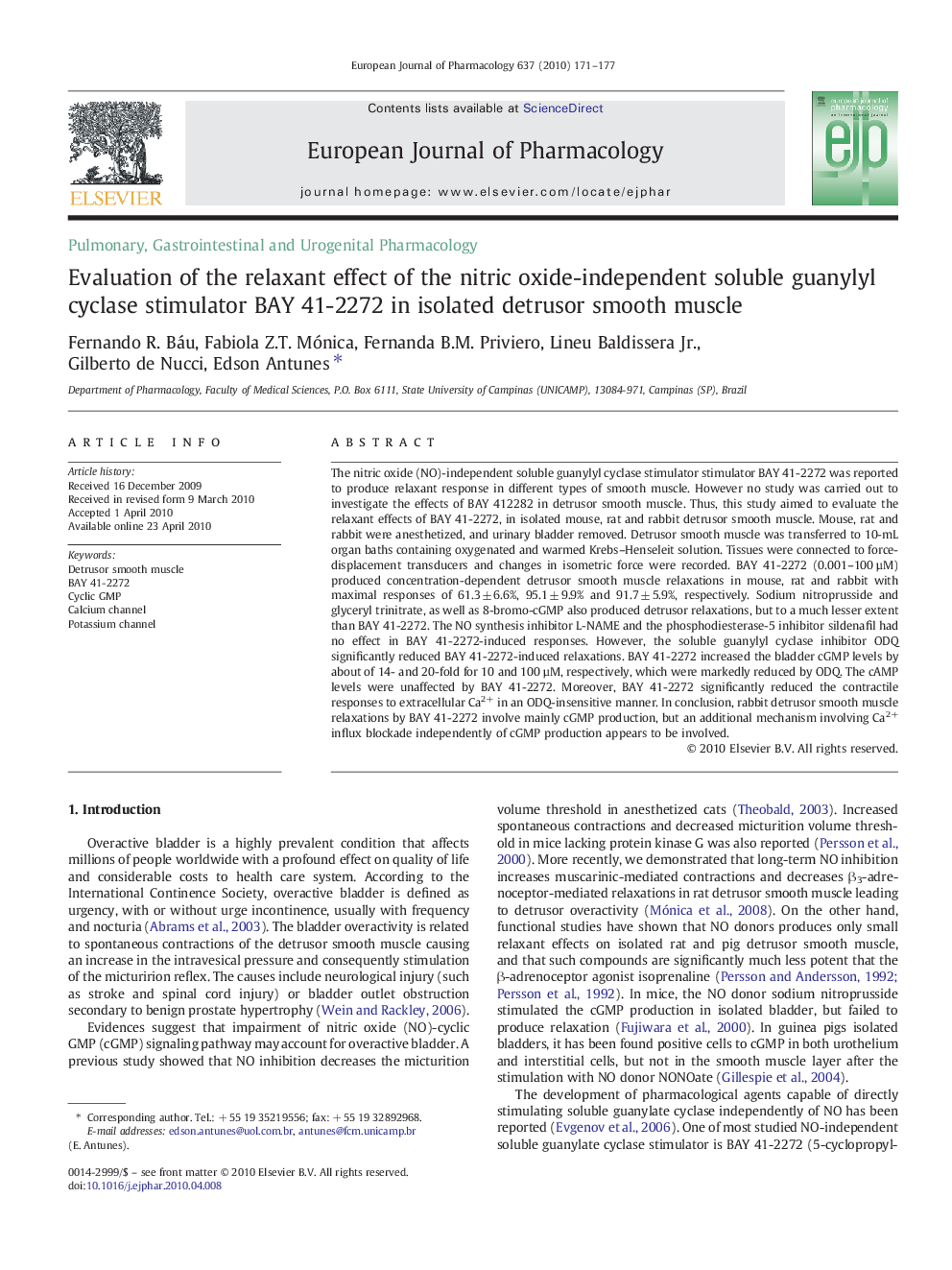| Article ID | Journal | Published Year | Pages | File Type |
|---|---|---|---|---|
| 2533489 | European Journal of Pharmacology | 2010 | 7 Pages |
The nitric oxide (NO)-independent soluble guanylyl cyclase stimulator stimulator BAY 41-2272 was reported to produce relaxant response in different types of smooth muscle. However no study was carried out to investigate the effects of BAY 412282 in detrusor smooth muscle. Thus, this study aimed to evaluate the relaxant effects of BAY 41-2272, in isolated mouse, rat and rabbit detrusor smooth muscle. Mouse, rat and rabbit were anesthetized, and urinary bladder removed. Detrusor smooth muscle was transferred to 10-mL organ baths containing oxygenated and warmed Krebs–Henseleit solution. Tissues were connected to force-displacement transducers and changes in isometric force were recorded. BAY 41-2272 (0.001–100 µM) produced concentration-dependent detrusor smooth muscle relaxations in mouse, rat and rabbit with maximal responses of 61.3 ± 6.6%, 95.1 ± 9.9% and 91.7 ± 5.9%, respectively. Sodium nitroprusside and glyceryl trinitrate, as well as 8-bromo-cGMP also produced detrusor relaxations, but to a much lesser extent than BAY 41-2272. The NO synthesis inhibitor L-NAME and the phosphodiesterase-5 inhibitor sildenafil had no effect in BAY 41-2272-induced responses. However, the soluble guanylyl cyclase inhibitor ODQ significantly reduced BAY 41-2272-induced relaxations. BAY 41-2272 increased the bladder cGMP levels by about of 14- and 20-fold for 10 and 100 µM, respectively, which were markedly reduced by ODQ. The cAMP levels were unaffected by BAY 41-2272. Moreover, BAY 41-2272 significantly reduced the contractile responses to extracellular Ca2+ in an ODQ-insensitive manner. In conclusion, rabbit detrusor smooth muscle relaxations by BAY 41-2272 involve mainly cGMP production, but an additional mechanism involving Ca2+ influx blockade independently of cGMP production appears to be involved.
